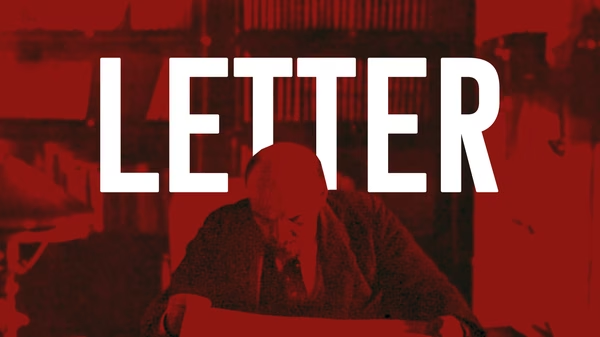To the editors of Cosmonaut,
I recently read the essay "Dissolving the people and electing Another" and decided I could contribute my own thoughts on 2 topics it touched on. These are how to overcome conflict and disagreement on the left and the strengths and weaknesses of DSA and its organizing model as a "big tent" socialist organization.
In my personal experience, disagreement and tension are fairly common in political and activist organizations. The question as raised by the essay and comrade Marisa is how to resolve them without splits or weakening the org. My answer is slightly different than hers is and it is informed by my role as a DSA leader. First of all to paraphrase Nietzche "it is not shared sorrows which form friendship but shared joys". People share bonds through shared experience and it helps if these experiences are positive, like canvassing for Medicare for All and Bernie or rallying for the Green New Deal. These activities forged bonds between me and my comrades. We had a shared project that was concrete and actionable. It is these bonds that lead to trust and comradeship.
However, for various reasons ( most recently and notable Covid Pandemic) these shared activities are not always done. This has made building personal connections difficult. It is hard to build comradely on zoom calls or through reading groups. I think this lack of interaction invites distrust and disunity. A similar point was made in the classic essay " The Tyranny of Structurelessness' '. Briefly, that essay pointed out that non-hierarchical groups that do not have shared projects tend to develop cliques and petty tyrannies.
Therefore in my opinion many disagreements can be avoided simply by collective action and collective struggle. Issue campaigns are good examples of this, preferably issues that are widely and deeply felt by socialist organizers and the communities they live in.
That being said, despite all of the above taking place conflict can and still does happen. After all, DSA has had its share of disagreements despite often focusing on issue campaigns and external activities. Both conventions I attended as a delegate had their share of intense disagreements, the 2019 convention was particularly contentious and emotionally taxing. But despite bitter personal rivalries and fierce ideological confrontation DSA held together. A new leadership replaced the old. Why was this? The convention was democratic and a majority decided the path forward for the organization. Voting and internal democracy are important ways to solve problems and end conflicts. I've noticed internal democracy and voting on leaders aren't always present in the USA left. In fact, it is largely absent from most people's lives. This is something that needs to be understood and appreciated. Members need to choose their leaders and at the same time respect rules of democracy and the majority.
This brings me to my next point, which is that DSA is a fairly successful left-wing organization despite having loose standards of membership. Being an easy organization to join and not having a rigid platform has allowed DSA to grow to 95,000 members. Marisa is right to point out that "chapters tend to focus on single-issue campaigns and rarely determine common strategic vision. DSA struggles to articulate its own purpose and push its network of chapters and committees to fulfill it, despite having many movement veterans amongst its ranks." However, this isn't entirely negative. DSA was intentionally structured by founder Micheal Harrington to avoid the problems of sectarianism faced by earlier organizations, notably SDS which split. This structure does make it hard for the organization to act in a concerted way but it is one reason it lasted so long. The decentralized nature of the org means one faction taking power and purging other members is very hard.
That being said, DSA still has strategic priorities despite a decentralized structure. BDS was simply not one of the priorities established at the 2021 or 2019 convention. What was a priority of both the 2019 and 2021 convention, was the Green New Deal which was championed by Jamall Bowman in congress in the form of the Green New Deal for Public Schools and Build Back Better. In my opinion, the controversy DSA faced around congressman Bowman's bad vote on the Iron Dome has more to do with tensions being high due to covid and failure of Build Back Better than anything else.
The past 2 years of the coronavirus pandemic have been very hard for everyone and there are many external circumstances no Left or any social movement can really control. I hope the DSA and larger movement it is a part of can nonetheless grow and succeed despite these massive obstacles.
Sincerely,
Nathan Arries
Liked it? Take a second to support Cosmonaut on Patreon! At Cosmonaut Magazine we strive to create a culture of open debate and discussion. Please write to us at submissions@cosmonautmag.com if you have any criticism or commentary you would like to have published in our letters section.
